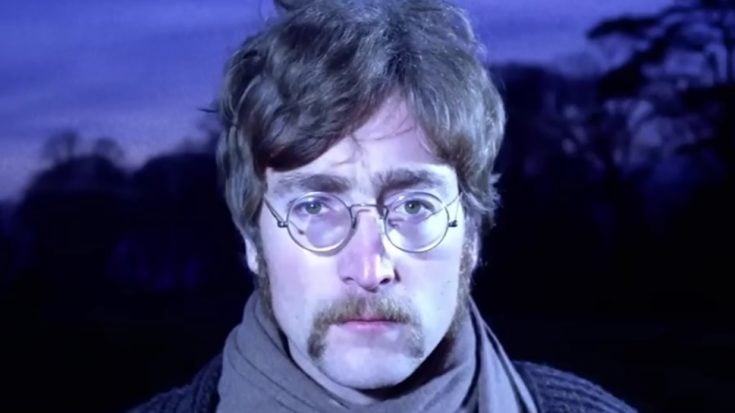The Truth Why John Lennon and Todd Rundgren Hated Each Other

via Biographer / YouTube
These days, big-name musicians fighting each other isn’t really much of a surprise. They keep people busy, though, with Twitter going abuzz choosing sides and whatnot. In the past, without the toxicity of the internet, fights between influential rockstars were relatively unusual.
During a particularly uneventful time in 1974, the two prominent rock stars who openly feuded in public were John Lennon and Todd Rundgren. On one end was the legendary Fab Four frontman who was in the middle of his 18-month “lost weekend” while establishing a Yoko-free solo career.
View this post on Instagram
On the other side of the fence was a man who fronted a psychedelic rock band called Nazz, and was still riding the high from his most successful song at the time, “I Saw The Light”. The tale of the tape was uneven though the barbs traded were equally scathing.
Although the feud between them didn’t evolve into a long-lasting rivalry, it was nevertheless captivating for enthusiasts of rock music to observe these two iconic musicians from that era engaging in verbal sparring within the pages of a renowned British music publication.
“John Lennon ain’t no revolutionary”
It all started with an interview with Melody Maker. The initial volleys in the conflict originated from Rundgren, who expressed his grievances against John Lennon during a 1974 interview with the British weekly music magazine.
The American rockstar minced no words, directing his criticism at his British counterpart’s apparent hypocrisy. While Lennon projected progressive ideals through his music, Rundgren highlighted a history of questionable conduct, particularly concerning his treatment of women.
He bluntly stated, “John Lennon ain’t no revolutionary,” he said. “He’s a f*cking idiot, man. Shouting about revolution and acting like an ass. It just makes people feel uncomfortable.”
Rundgren further suggested that Lennon’s advocacy for these viewpoints might be a calculated attempt to garner attention. There were confirmed instances of the former Beatle engaging in physical aggression towards women. Rundgren also alleged that Lennon hit a waitress.
In his now-famous 1980 interview with Playboy, Lennon openly admitted to engaging in altercations with men and assaulting women. He acknowledged that this darker aspect of his personality was hinted at in the final verse of the Beatles’ 1967 track “Getting Better”.
Lennon said: “All that ‘I used to be cruel to my woman, I beat her and kept her apart from the things that she loved’ was me. I used to be cruel to my woman, and physically – any woman. I was a hitter. I couldn’t express myself and I hit. I fought men and I hit women.”
In a bout of hubris, Rundgren even expressed his belief that his former band, the Nazz, exhibited greater creativity compared to the Beatles. He contended that the Beatles lacked versatility beyond their signature style.
It’s worth noting that Rundgren wrote and recorded a song called “Rock & Roll Pussy”, a short criticism of some sort against self-styled revolutionaries in rock. Like Lennon, or so he claims.
Notwithstanding the varied and influential discography the Fab Four churned out during its time, Rundgren’s claims can easily be countered by the fact that Lennon’s band achieved significantly greater success than the Nazz ever did. But, whatever.
“An opened lettuce to Sodd Runtlestuntle”
Lennon was never one to back out from a fight. And the sharp-minded Beatle was known for his caustic wit, which was on full display as he dismantled Rundgren with a hilarious open letter published also in Melody Maker.
In an opened lettuce (sic) to one Sodd Runtlestuntle, Lennon bastardized Rundgren’s name once more in the first paragraph by referring to him as “Turd Runtgreen”. Yeah, don’t piss off a half-insane Lennon in the middle of his “lost weekend”, folks.
Lennon kicked off the letter with a slightly backhanded compliment for Rundgren, conceding his appreciation for Rundgren’s 1972 hit “I Saw the Light.” However, he went on to mention that he found it somewhat reminiscent of the Beatles’ “There’s a Place,” a lesser-known track from their debut album Please Please Me.
From there, Lennon embarked on a point-by-point rebuttal of Rundgren’s statements. He clarified that he had “never claimed to be a revolutionary,” addressing Rundgren’s assertion, and firmly denied the accusation of hitting a waitress, although he did acknowledge his intoxication during the incident and that he acted “like an ass”.
In a playful exchange of name-calling that saw Lennon amusingly referring to Rundgren as “Rodd,” “Dodd,” and “Godd,” the rebuke continued. Lennon used sarcasm to underscore that the former frontman of the Nazz lacked true originality, while also noting that the Beatles had traversed a multitude of musical styles, including some that seemed to align with Rundgren’s own.
Wrapping up his response, Lennon jocularly suggested that Rundgren’s frustration might stem from not recognizing him during an encounter in Los Angeles.
The succulent “lettuce” concluded with a funny “Anyway, However much you hurt me darling; I’ll always love you”. A classic Lennon touch.
They quickly buried the hatchet
Thankfully, there are no Twitter threads in the ‘70s for fans and shit-stirring non-fans to fight in. No YouTube channels or gossip websites for blabbermouths to fabricate lies on in order to milk the controversy.
The 70s was a more straightforward era, resulting in the rapid reconciliation between the two musicians. The fight could have gone on and both sides might have hurled bigger crap against each other, but it all ultimately boiled down to the British publication’s attempt to provoke a reaction.
View this post on Instagram
This was not unlike the tactics employed in modern times by social media’s expert agitators. Rundgren and Lennon astutely recognized this scheme, leading to a swift resolution.
Describing the situation, Rundgren recounted in a 2013 interview with The Guardian, “That was more of a stunt, really, cooked up by the paper so they could splatter the acrimony across their pages like blood!”
Ultimately, both sides realized they were being used and the spat ended with a short and succinct message from Lennon saying “Let’s drop this now.”













